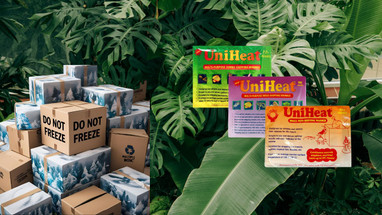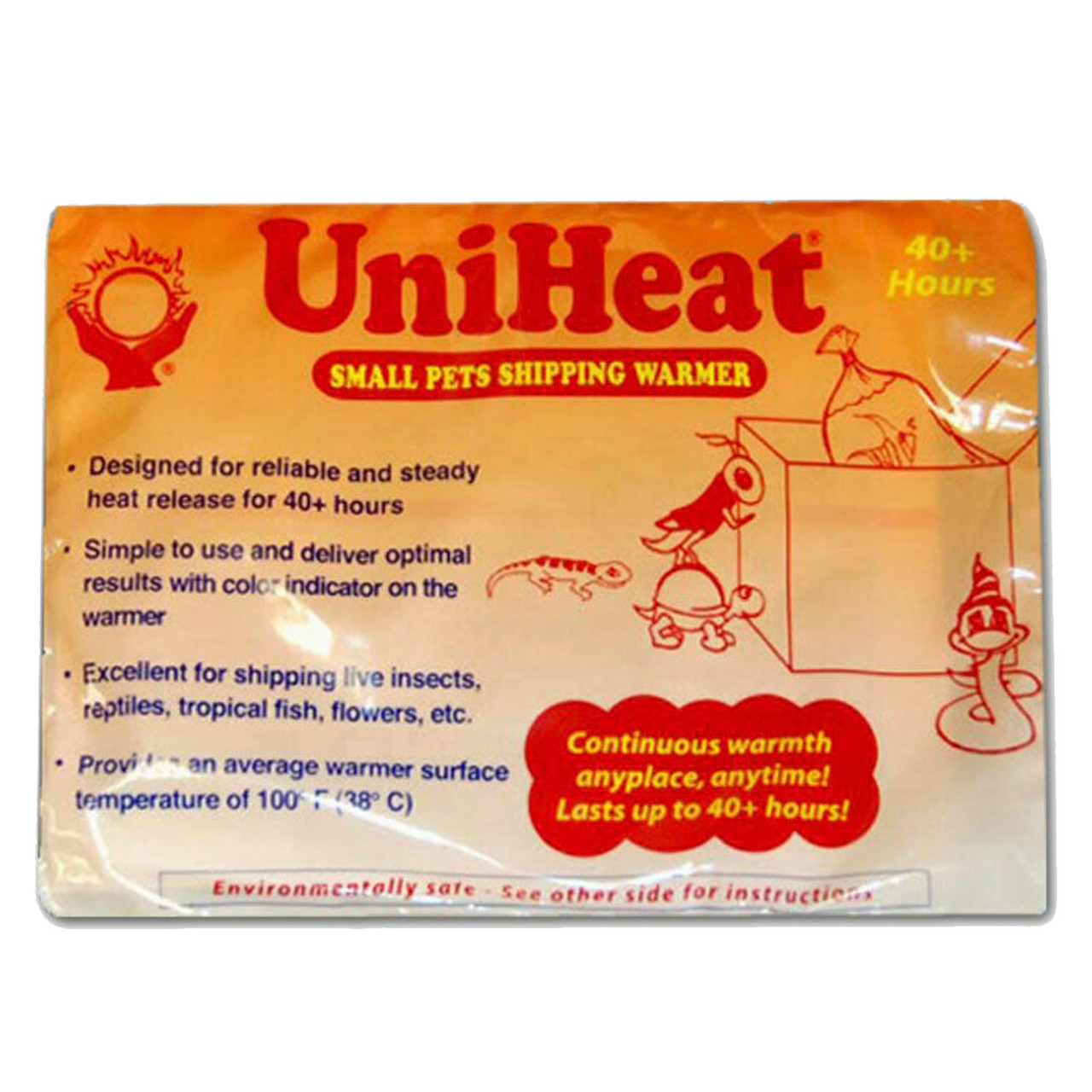Posted by UniHeatPacks on 13th Aug 2025
Shipping Tropical Houseplants
Tropical houseplants are as sensitive to temperature changes as they are beautiful. When shipping them—especially during the colder months—keeping them warm is essential to preventing stress, leaf drop, or even plant death.
Why Cold Damage Happens
Tropical plants thrive in temperatures above 60°F (15°C). Prolonged exposure to temperatures below this threshold can cause chilling injury, leading to wilting, blackened leaves, or stunted growth. These conditions can occur in transit even if the weather is mild at the origin or destination.
Choose the Right Heat Pack Duration
- 20–30+ Hours: Short, regional deliveries or mild cold.
- 40–60+ Hours: Most 1–2 day shipments; moderate cold.
- 72–96+ Hours: Long routes, export, or deep cold spells.
UniHeat warmers provide a steady average surface temperature near 100°F (38°C) to keep the micro-environment warm without overheating.
Packaging Checklist
- Sturdy box sized to limit empty air space
- Insulation: foam panels or thermal bubble wrap
- Paper padding to keep plants from shifting
- UniHeat shipping warmer (correct hour rating)
- Vent holes or breathable liner (do not seal airtight)
- “Live Plants – Keep Warm” label
Step-by-Step Packing
- Hydrate lightly 24 hours prior so plants are firm but not waterlogged.
- Prepare the warmer: Open the UniHeat pack and shake to activate 20–30 minutes before boxing until it begins to warm.
- Insulate the box: Line walls with foam/thermal wrap. Add a paper layer on the bottom.
- Place the warmer: Tape the pack to the lid or side, air-hole facing out, with a thin paper layer between pack and foliage.
- Secure the plants: Sleeve leaves, pot in plastic to prevent soil spill, and cushion gaps with paper.
- Vent & seal: Add a couple of small vents; close firmly.
Timing & Carrier Tips
- Ship Mon–Wed to avoid weekend holds.
- Use Priority/Express when lows are under 40°F (4°C).
- Request hold for pickup to avoid porch exposure.
- Add tracking alerts for quicker retrieval on arrival.
When to Pause Shipping
Delay if any point on the route shows sustained lows below 10–15°F (-12 to -9°C) and transit is over 48 hours—even with a warmer.
On Arrival: What Buyers Should Do
- Bring the box indoors immediately; unbox carefully.
- If leaves feel cool, let the plant acclimate at room temp for several hours before watering.
- Trim mushy tissue and monitor new growth—many plants bounce back within weeks.
FAQ
Can a heat pack overheat plants?
UniHeat warmers are engineered for shipping. Keep a paper buffer and avoid sealing the box airtight to regulate oxygen flow and temperature.
How many packs per box?
One pack is usually sufficient for a small to medium box. For larger insulated cartons or extreme cold, use two smaller packs placed apart rather than one large pack directly against foliage.
Recommended UniHeat Warmers
Final Thoughts
With the right preparation and the right UniHeat warmer, your tropical houseplants can arrive as vibrant and healthy as when they left. When in doubt, opt for a slightly longer duration to account for unexpected delays.




